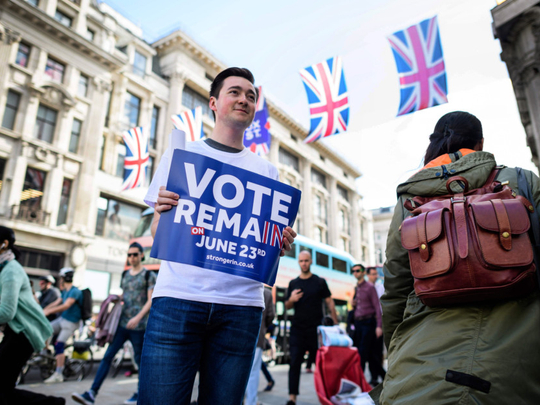
“It’s the economy, stupid.” Since former United States president Bill Clinton’s campaign coined that phrase nearly a quarter century ago, it has become a kind of mantra for western politicians. I’ve seen it translated into multiple languages, used by politicians of the Right and the Left, deployed on campaigns and put into the headlines of articles. It has also helped reinforce, across Europe and North America, a form of politics that may ironically be described as Marxist, since it mirrors Karl Marx’s belief that “base determines superstructure”, that the economy moulds everything else. In election after election, candidates have argued over who is best positioned to create more wealth and greater prosperity. British elections have been fought over tax percentage points, German elections over labour mobility. Each contest was made possible by the absence of more existential issues — wars, rebellions, breakdowns in law and order — and by the assumption that most voters agreed, more or less, on the nature of the state.
No more. With the British referendum on European Union (EU) membership, scheduled for today, a whole tradition of polite argument over tax and spending has come to a crashing end. This angry and emotional campaign also started out, like most British elections, as an argument about economics. But it slowly became clear that the Remain campaign had all the best arguments and all the best economists. And so the Leave campaign, and the newspapers that support it, shifted focus to the threat of immigration, the loss of sovereignty and the preservation of Englishness in a dangerous world.
Leave campaigners invented a mythical threat from Turkish immigrants, never mind that Turkey is not in the EU and is unlikely to join. They invented a mythical threat to Britain’s National Health Service (NHS), never mind that many NHS nurses and doctors come from continental Europe. Last week, the leader of the United Kingdom Independence Party (Ukip), Nigel Farage, unveiled a poster that featured a threatening crowd of distinctly non-European-looking “migrants” and the slogan “Breaking Point”, never mind that Britain has taken few migrants in the past year, or that it is not part of the Schengen Treaty that created open borders within Europe. All of these messages are about identity, not reality: We English are disappearing; we English are being engulfed by outsiders; we need to “Take Back Control”, as the Leave campaign slogan has it; we need to fight back against foreigners/regulations/globalisation/modernity or whatever you personally find threatening.
While this line of argument was predicted, its unexpected new corollary was not. For the Leave campaign has also begun to argue, in effect, that economics don’t matter, or at least that they don’t matter much as we usually assume they do. Farage has said “so what” to the prospect of a sterling and stock market crash. Warnings from the Bank of England and the International Monetary Fund have been dismissed even by Conservatives who normally respect these institutions. The real surprise is not that the Leave activists dispute predictions of slower growth or financial chaos. It’s that they don’t care about them. As the Financial Times columnist Janan Ganesh wrote recently: “They can live with a recession if they must.”
It’s not “the economy, stupid” that matters anymore, in other words, but something quite different. George Orwell hit on the deep flaw in modern democratic political rhetoric in 1940, when he wrote about the powerful appeal of the undemocratic politics and the nationalist rhetoric of his time. “Human beings don’t only want comfort, safety, short working-hours, hygiene ... they also, at least intermittently, want struggle and self-sacrifice, not to mention drums, flags and loyalty-parades.” Just like the various “far-right” politicians in the Netherlands or France — or indeed the Donald Trump campaign in the US — the Brexit crowd is offering something higher and more transcendent than the dull world of taxes, spending, budgets. And if the drums and flags make Britain poorer, so what?
Whatever the final result, all of this emotion carries a cost. It has already strained friendships, as I know. It may cause a political earthquake, too. If Britain does vote to remain in the EU today, then angry and disappointed Conservatives may rebel against their leaders, or even join Farage. The Ukip leader himself rules out nothing. He told a BBC interviewer recently that “if people feel that voting doesn’t change anything, then violence is the next step”. After a pro-European Labour member of parliament, Jo Cox, was killed by a man shouting “Britain first!,” those words sound horribly prophetic.
And if Britain votes to leave, which is certainly possible, what then? What if the economic costs are higher than expected? What if “control” turns out to be a chimera? Upon whom will the anger turn next? Maybe we’ll just go back to worrying about taxes, but I doubt it.
— Washington Post
Anne Applebaum is the director of the Global Transitions Programme at the Legatum Institute in London.











